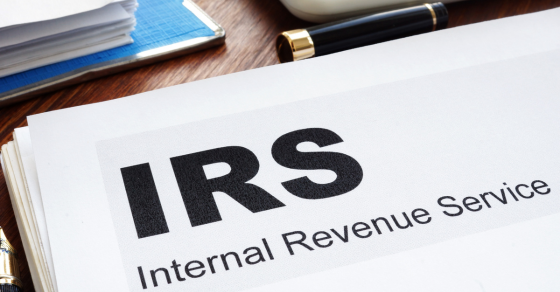|
As we move forward, it's important to set clear expectations and educate you about the current state of the accounting industry. According to the American Institute of Certified Public Accountants (AICPA), from 2016 to 2021, there has been a 33% decline in first-time candidates taking the CPA exam. Additionally, 75% of CPAs are at or nearing retirement age. Consequently, there has been a collective 17% decline in the number of accountants in the U.S.
Given these challenges, we want to inform you about the steps Cornbelt Financial is taking to address the challenges that our industry is presented with. Here are the key areas we are focusing on: Simple Economics: Increased Demand and Rising Prices With the decline in the number of accountants, demand for accounting services (and staff) now exceeds supply. As a result, prices for accounting services are increasing across the industry. It's important to understand that this is a widespread trend affecting all firms, not just ours. We are committed to maintaining fair pricing while ensuring we can continue to offer the high-quality services you expect. Leveraging Technology: Enhancing Efficiency and Client Experience In response to these industry changes, we have invested heavily in deploying a robust operating system in Canopy. This technology enhances our efficiency and helps streamline processes. We encourage all our clients to follow the processes, read instructions carefully, and use the tools and systems we have made available. By doing so, you help us serve you more effectively and ensure a smoother experience for everyone. Identifying and Developing New Talent We are actively addressing the talent shortage by identifying and developing new talent. We are excited to welcome Joven Nelson, who has been interning with us since 2020, as a full-time team member. Additionally, we have hired Sam Billman as an intern this summer, who will graduate in 2025. Investing in the next generation of accountants ensures that we have the skilled professionals needed to continue serving you in the future. Seeking Remote Talent: Expanding Our Talent Pool To adapt to the changing landscape, we also seek remote talent. This approach allows us to access a broader talent pool and ensures we have the expertise required to meet your needs. By embracing remote work, we can attract top talent from across the country, further strengthening our team and enhancing our ability to serve you. How You Can Help Your cooperation and understanding are essential as we navigate these industry challenges together. Here are a few ways you can help us continue providing you with exceptional service:
At Cornbelt Financial, we believe that empowering our clients is key to their success. Our approach goes beyond traditional accounting services; we strive to provide a comprehensive client experience that includes utilizing available tools, timely document submission, proactive tax planning, and embracing our paperless and remote office. By empowering our clients with the right resources and guidance, we aim to create a partnership that fosters success and financial well-being.
Use of Available Tools, Resources, and Workflows We have carefully selected and developed tools and workflows that streamline our processes and enhance your experience. By adhering to these preferred methods, you not only benefit from our optimized services but also help us maintain efficiency across the board. Exceptions will become limited as outliers often experience a less-than-preferred experience and distract us from serving clients using the preferred tools and resources. Clients who do not use the recommended tools may experience delays and may be subject to additional fees in the future. Let's work together to ensure a smooth and efficient process for everyone. Timely Document Submission One of the key factors in providing timely and accurate tax services is the early and complete submission of your tax documents. Utilize our client portal to upload your documents and check your inbox for system notifications from [email protected] & [email protected]. This ensures that we can start working on your returns promptly and avoid any last-minute rushes. Proactive Tax Planning Engaging in off-season tax planning is crucial for optimizing your tax outcomes and gaining insights into what to expect in the next tax season. By working with us proactively, you can take advantage of strategies that minimize your tax liability and improve your overall financial health. Paperless and Remote Firm We are proud to operate as a paperless and remote firm, saving approximately 60,000 pages of paper annually, which is equivalent to about six trees and over 16 tons of carbon by not requiring staff to commute. This commitment to sustainability not only benefits the environment but also enhances our efficiency and reduces overhead costs, allowing us to focus more on serving you. Essential Requirements for Clients To ensure a smooth and efficient process, we require the following from our clients:
Setup Direct Debit / Deposit for Refunds and Balances Owed Setting up direct debit for balances owed and direct deposit for refunds simplifies the payment process and ensures timely transactions. This also reduces the risk of errors and delays associated with manual payments. Update Tax Withholding or Submit Quarterly Estimates Online To avoid any surprises at tax time, it’s essential to regularly update your tax withholding or submit quarterly estimates. This proactive approach helps manage your cash flow and ensures you stay compliant with tax obligations throughout the year. By following these guidelines and utilizing the resources we provide, you can maximize the benefits of our services and ensure a smooth and successful partnership with Cornbelt Financial. We are here to support you every step of the way and help you achieve your financial goals. At Cornbelt Financial, providing exceptional service means operating on a carefully structured timeline. To set clear expectations and help you plan ahead, we've created a firm calendar highlighting key dates and deadlines.
While tax season is our busiest period, our work is truly a year-round endeavor. We follow a structured calendar to ensure we can devote the proper time and attention to each client's needs. Maintaining a defined schedule allows us to thoroughly analyze your financial situation, identify opportunities, and deliver accurate, timely results. We'll partner closely with you to align our timelines with your needs, pivoting as circumstances demand. Open communication is key to making this a seamless, stress-free experience every year. Here's what you need to know about how we'll collaborate smoothly throughout the year. We'll update this on an ongoing basis going forward. January 1st - Engagement Renewals & Tax Organizers:
Tax season can be a hectic time for many individuals and businesses alike. If you find yourself needing more time to gather your tax information and file your returns, don't worry – you're not alone. Filing an extension can provide you with the extra time you need to ensure accuracy and compliance with the tax laws. Here are some common questions and answers about filing a tax extension.
1. What is an extension? An extension, in tax terms, refers to the process of filing a Form 4868 with the IRS to request additional time to file your tax return. It provides an automatic 6-month extension beyond the original due date, typically until October 15th. It's important to note that an extension is only for filing your tax return and does not extend the deadline for paying any taxes owed. 2. Does an extension increase my audit risk? No, filing an extension does not increase your risk of being audited by the IRS. An extension simply gives you more time to complete and submit your tax return accurately. As long as you accurately report your income and deductions, you should not face any additional audit risk. 3. Does it cost to file an extension? In most cases, Cornbelt Financial may bill clients for filing an extension, particularly for document submissions occurring after June 30th. Additionally, it's important to note that the IRS typically assesses penalties and interest on any taxes paid after the original deadline (typically April 15th). If you anticipate having a balance owed, it's advisable to remit payment online or with your mailed extension to avoid additional penalties and interest. 4. How do I know whether I should submit a payment with my extension? If you historically receive refunds and nothing has changed with your income or deductions, you can generally feel comfortable that you won't need to remit a payment with your extension. However, if you commonly have a balance due, it's recommended to remit a payment with your extension to minimize penalties and interest (https://www.irs.gov/e-file-providers/paying-your-taxes). If you've experienced significant changes or life events that may impact your tax liability, please complete the tax organizer and provide an explanation of what changed. Upload as much information as you have available, and we can review it to determine an appropriate estimate of tax to pay with the extension. 5. Does my state require an extension? Most states grant an automatic extension alongside the federal extension. However, some states may have different requirements or deadlines. Regardless, the same principles apply – if you anticipate owing a balance, it's important to remit payment with your state extension to avoid penalties and interest. Filing a tax extension can provide you with the time and peace of mind needed to ensure your tax returns are accurate and complete. If you have any further questions or need assistance with filing an extension, don't hesitate to reach out to our team. We're here to help guide you through the process and address any concerns you may have. Discover the ins and outs of Colorado's Electric Vehicle Tax Credit. Aimed at residents of Colorado, this guide provides a comprehensive overview of the state's Innovative Motor Vehicle Credit program. Learn about the purpose and eligibility criteria. Explore the types of entities eligible for the credit and the specific requirements for qualifying vehicles. Whether you're considering going electric or simply curious about Colorado's green initiatives, here is additional information on how it could benefit your taxes.
Purpose and Eligibility:
Eligible Entities:
Qualifying Motor Vehicles:
Titling and Registration:
Credit Amounts:
Credit Assignment:
Claiming the Credit:
Estimated Tax Payments:
Navigating the electric vehicle tax credit involves understanding filing procedures and changes effective from 2024. Whether claiming the credit on your tax return or transferring it to the dealer, staying informed ensures a smooth process. As always, consult with us for personalized guidance based on your unique circumstances. *Note: The information provided is based on the latest details as of 02/05/2024. Tax laws are subject to change, and it's essential to stay informed about any updates. As we kick off the new year, tax season is in full swing. We sincerely hope your year has been off to a fantastic start. Here at Cornbelt Financial, we're dedicated to making your tax filing process smooth and stress-free.
By now, most of you should have received the majority of your tax documents from various sources. We encourage our current clients to take a proactive approach and upload all available documents to our secure portal as soon as possible. If you are looking for support on your taxes this year and are not yet a Cornbelt Financial client, please reach out to us today and we would be happy to discuss options with you. This proactive step will help us stay ahead of the tax deadline and avoid any last-minute chaos. Current Cornbelt Financial Clients: Action Required: If you haven't already, keep an eye out for our engagement letter and client portal invites from the following email addresses:If you haven't received these emails, we recommend checking both your inbox and spam folder. Adding these email addresses to your contacts will ensure that our system-generated emails make it safely to your inbox, keeping you informed every step of the way. Why Upload Early? Uploading your documents early allows us to review your information thoroughly, identify any missing pieces, and provide you with timely guidance and support. By working together proactively, we can minimize both yours and ours stress, provide a better experience for you, and minimize any potential issues. Need Assistance? If you encounter any difficulties or have questions about the uploading process, please don't hesitate to reach out to our team. We're here to assist you every step of the way and ensure that your tax filing experience is as seamless as possible. Thank you for entrusting Cornbelt Financial with your tax needs. We appreciate your continued partnership and look forward to helping you achieve your financial goals in the year ahead. Receiving a notice from the IRS or the Department of Revenue can be unsettling, but it's essential to address it promptly and correctly. Here's a step-by-step guide on what to do if you find yourself in this situation.
Notify Cornbelt Financial Immediately: The moment you receive a notice, don't hesitate to reach out to us. Please upload a complete copy of the notice through our secure client portal. Prompt communication allows us to begin the resolution process swiftly. Be Cautious of Communication Methods: The IRS and the Department of Revenue primarily communicate through traditional mail. Be wary of phone calls or emails claiming to be from these entities. The IRS won't call you demanding immediate payment, nor will they initiate contact via email. If in doubt, consult with us before responding. Confirm the Legitimacy of the Notice: Before taking any further action, let us review the notice to confirm its legitimacy. Unfortunately, scams and phishing attempts are prevalent. By involving us, we can ensure that the notice is genuine and not a fraudulent attempt to obtain sensitive information or your money. Understand the Reason for the Notice: Once we've verified the notice, we will analyze its contents to determine why it was issued. Notices can cover a range of topics, from discrepancies in tax returns to requests for additional information. Understanding the reason is crucial for crafting an effective resolution strategy. Don't Panic - Stay Informed: It's natural to feel uneasy when you receive a notice, but it's important not to panic. We are here to guide you through the process, explain the implications of the notice, and outline the necessary steps for resolution. Remain Patient: Unfortunately, the IRS and many other agencies are backlogged and understaffed. Additionally, due to their outdated means of communication and resolution channels in place, resolution often takes a long time to achieve. Follow Our Guidance & Respond Promptly: If a response is required, we’ll guide you on the specific steps to take for resolution promptly and ensure that the information provided is accurate. Follow our instructions carefully, and if you have any questions or concerns along the way, don't hesitate to reach out. Delays or inaccuracies in your response could lead to additional complications. Keep Records: Maintain a copy of the notice and any related correspondence for your records, this includes certified mail receipts. This documentation is valuable for reference and can aid in the resolution process. Remember, you are not alone in navigating these matters. Our team at Cornbelt Financial is here to support you every step of the way. By taking the right actions and avoiding common pitfalls, we can work together to address the notice efficiently and effectively. Are you considering the purchase of a NEW electric vehicle (EV), plug-in hybrid, or fuel cell electric vehicle in 2024 or did you purchase one in 2023?
The federal income tax credit for these eco-friendly vehicles is a significant incentive. Here's a breakdown of the key details: 1. Maximum Credit of $7,500:
2. Eligibility Criteria:
3. Vehicle Requirements:
4. Critical Minerals and Battery Component Requirements:
5. Final Assembly Location Verification:
6. MSRP Definition:
7. Filing for the Credit:
8. Changes Starting January 1, 2024:
9. Eligibility Verification:
10. Buyer Responsibilities:
Navigate the Federal Tax Credit for Pre-owned Electric Vehicles 1. Federal Tax Credit for Pre-owned Electric Vehicles:
2. Credit Details:
3. Qualification Criteria:
4. Exclusions:
5. Who Qualifies:
7. Income Thresholds:
8. Vehicle Requirements:
9. Qualified Sales:
For additional information on the Federal Electric Vehicle Tax Credit please contact your Cornbelt Financial representative today. When it comes to philanthropy, many individuals are discovering a powerful strategy that not only supports charitable causes but also unlocks significant tax advantages. The key lies in donating appreciated assets, such as financial assets, artwork, antiques, classic cars, etc. and enjoying a deduction based on their current fair market value rather than their original cost. This approach provides a unique opportunity to make a meaningful impact on charitable organizations while optimizing your financial portfolio.
Understanding Appreciated Assets: Appreciated assets are investments or possessions that have increased in value over time. This appreciation can result from various factors, such as market conditions, rarity, or historical significance. Common examples include real estate, stocks, collectibles, and valuable personal property like art or classic cars. The Tax Advantage of Donating Appreciated Assets: One of the significant advantages of donating appreciated assets is the ability to deduct their current fair market value on your tax return, provided you have owned the asset for more than a year. This differs from selling the asset, where capital gains tax may apply. Example Scenario: Consider a scenario where you own a valuable piece of art that you purchased for $10,000 several years ago. Over time, the artwork's value has appreciated, and it is now worth $50,000. If you were to sell the artwork, you would incur capital gains tax on the $40,000 appreciation. However, by choosing to donate the artwork to a qualified charitable organization, you can potentially receive a tax deduction for the full $50,000 fair market value. This strategy not only supports a cause you care about but also minimizes your tax liability. Considerations Before Donating:
Consult with Professionals: As with any financial strategy, it's essential to consult with financial advisors, tax professionals, and appraisers who specialize in charitable giving and the valuation of specific assets. Cornbelt Financial is here to help with any of these donation related questions. We can provide tailored guidance based on your unique circumstances. By exploring the option of donating appreciated assets, you can align your philanthropic goals with smart financial planning, ultimately creating a win-win situation for both you and the charitable causes you hold dear. Mastering Advanced Charitable Giving: A Guide to DAFs, CRTs, and Foundations for Maximum Impact1/11/2024
Employing sophisticated charitable giving techniques can serve as a strategic means to optimize your tax advantages. Presented here is a high-level overview of advanced charitable giving strategies, accompanied by an analysis of scenarios where each method may be most beneficial for individuals seeking to enhance their financial position through philanthropy.
1. Donor Advised Funds (DAF) A Donor Advised Fund (DAF) is a charitable giving vehicle that allows individuals to make contributions to a fund, receive an immediate tax deduction, and recommend grants from the fund over time. How it works: You contribute assets (cash, securities, etc.) to the fund, receive a tax deduction for the contribution, and then advise the fund on how to distribute grants to charitable organizations. When it makes sense: DAFs are beneficial for individuals who want to receive an immediate tax deduction for a charitable contribution but may want to take their time to decide which specific charities to support. 2. Charitable Remainder Trusts (CRT) A Charitable Remainder Trust (CRT) is an irrevocable trust that provides an income stream to the donor or beneficiaries for a specified period, after which the remaining assets go to a charitable organization. How it works: You transfer assets into the trust, and beneficiaries receive a percentage of the trust's value for a set number of years or for their lifetime. After the trust term, the remaining assets go to a charitable organization. When it makes sense: CRTs can be suitable for individuals with highly appreciated assets who want to receive an income stream, avoid capital gains tax on the sale of the assets, and support a charitable cause. 3. Private or Public Foundations Private Foundations and Public Foundations are types of tax-exempt organizations that operate for charitable, educational, or other philanthropic purposes. How they work: Private Foundations are typically funded by an individual, family, or corporation, and they have more control over their grant-making. Public Foundations are funded by the public and often engage in a broader range of activities. When it makes sense: Establishing a foundation may be suitable for individuals or families with significant wealth who want to have a more hands-on approach to their charitable giving and create a lasting legacy. Each of these advanced charitable giving strategies involves complex legal and financial considerations. Consulting with legal and financial professionals who specialize in charitable giving is crucial to understand the implications for your specific situation. Your choice of strategy may also depend on factors such as the size of your assets, your charitable goals, and your desire for ongoing involvement in the management of charitable funds. Reach out to a Cornbelt Financial representative today to learn more. |
AuthorAdam Carr, MBA, EA Archives
June 2024
Categories
All
|











 RSS Feed
RSS Feed

